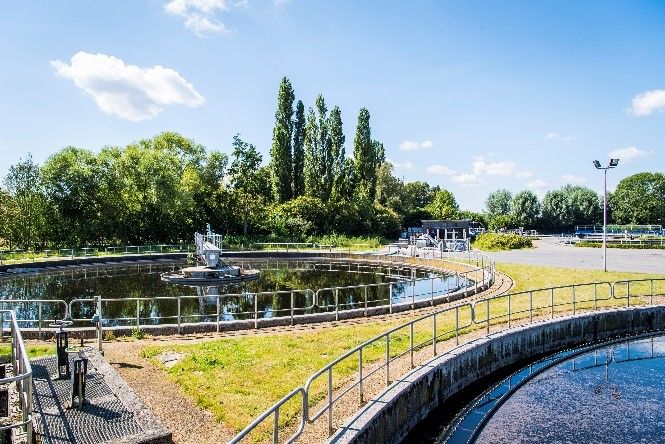VUB investigates whether treated wastewater can help agriculture via underground infiltration
In recent years, Flanders has been confronted with long and intense periods of drought. While natural water sources are under pressure, the demand for water for agriculture is very high at such times. The Soil Service of Belgium (BDB), Boerennatuur Vlaanderen, Aquafin and the hydrology research group of the Vrije Universiteit Brussel are now investigating whether treated wastewater via underground infiltration can offer a solution.
Professor Marijke Huysmans (VUB): “Every year, Aquafin treats 800 million m³ of household wastewater in its more than 300 sewage treatment plants. That is an enormous quantity that is discharged into the surface water after treatment, but it actually has great potential as an alternative water source. If we want to evolve a sustainable and robust water system in Flanders, the reuse of treated wastewater is essential. By using it for agricultural irrigation and retaining it in the landscape, we close the water cycle and prevent water scarcity.” Reverse drainage
Reverse drainage
In Molenbeersel (Limburg), the partners in the Subirri project are building a pilot site for sub-irrigation consisting of several agricultural plots next to the sewage treatment plant. Sub-irrigation is a technique whereby water is introduced into the soil through an underground pipe network. It is a drainage system whose operation is reversed. The water is led into the drains and infiltrates the soil through the openings in the drains. The soil becomes wetter and the groundwater level rises. As a result, the crops receive sufficient moisture, which should benefit the harvest.
Sub-irrigation is in itself a simple technique. The combination with the reuse of treated wastewater makes this project special. Specifically, research is being done into:
- the impact on the groundwater level and the water level in the rivers;
- the impact on the quality of the groundwater and the watercourses;
- the impact on the soil;rivers
- the efficiency of the technique compared to conventional above-ground irrigation;
- the impact on the harvest and the quality of the crops;
- consumer perception and attitudes towards the reuse of treated wastewater.
The Subirri project runs until the end of February 2023 and is financed by the European Agricultural Fund for Rural Development and the Province of Limburg. It is a LEADER Kempen and Maasland project. TThe complementary VUB Interdisciplinary research project “Re-use of treated wastewater for irrigation and groundwater recharge: Environmental impacts and public perception”, funded by the Vrije Universiteit Brussel, runs until March 2024.